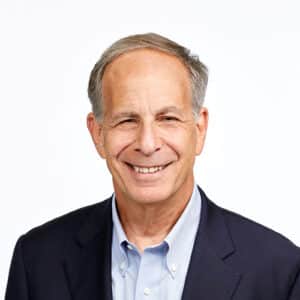Incivility in the workplace fueled by a divisive political climate was already a top concern for today’s HR leaders—and that was before former President Donald Trump became the first U.S. president convicted of a felony this week.
On Thursday, a New York jury found Trump guilty of 34 charges in a highly watched hush money trial. As the case wends its way through the court system, with an appeal nearly guaranteed, it will doubtlessly escalate political tensions leading up to what will be a momentous general election this fall.
Experts say those tensions will certainly bleed into the workplace. However, while leaders may be tempted to address this week’s news with their workforces, some experts say listening should take precedence over talking.
Speaking to HRE hours after the verdict was announced, global industry analyst Josh Bersin noted that many people feel “in shock” following the historic convictions and “nobody really knows what the overall implications will be.
“So, I think just a little bit of quiet and calm and listening to people is probably the best advice—not trying to second-guess what will happen,” he says.

Wharton professor and HRE columnist Peter Cappelli agrees: HR should be cautious not to jump too quickly into messaging about the convictions.
“Preemptory statements might just draw attention to the issue and lead to reactions that wouldn’t have happened otherwise,” Cappelli says.
While Bersin notes that the “safest reaction is to say nothing,” if workplace incivility starts to rise, leadership may need to be more proactive.
“If there are groups of employees who get very vocal or upset about what’s going on, then that will force the head of HR or CEO to make some statement,” Bersin says.
HR’s messaging in a divisive climate
This week’s news highlights the fine line HR leaders must walk when communicating with workers about hot-button issues.
For instance, in a recent survey of 1,000 U.S.-based workers by HRIS provider HiBob, 44% of respondents said they would be hesitant to accept a job offer from a company that has espoused opposing political views—an increase of five percentage points from last year.
At the same time, 60% of those surveyed by HiBob believe leaders should take steps to encourage respectful discourse among workers about sociopolitical issues—a jump of 10 points from 2023.
Bersin says that if leadership is moved to make a statement stemming from Trump’s convictions, it should emphasize the need for mutual respect and collaboration.
“I can’t speak for every CEO and how they’re going to react, but I think that’s the best thing to do,” he says.
Nancy Geenen, CEO of equity and inclusion consulting firm Flexability, says civility and kindness “should be the message of the day” if HR is prompted to intervene in workplace disagreements. Such messaging can discourage public displays about the verdicts—whether in celebration or opposition—and emphasize the company’s policy on bullying.

“Civility is a way of communicating where people can disagree agreeably,” adds Stephen Paskoff, president and CEO of human capital consulting company ELI.
HR should emphasize that workers “can, if they want to, discuss certain issues, but they have to adhere to standards of behavior so as to not interfere with professional, inclusion, collaboration and teamwork—all of which are of critical interest for people in HR,” he says.
Paskoff adds that such communication must be supported and reinforced by senior leadership.
“You’ve got to live by your values; you can’t just talk about them,” he says.
While some companies have tackled political tension by attempting to ban all political talk in the workplace, Edward Beltran, CEO of global leadership development and training company Fierce Conversations, says his firm’s research has found that more than 80% of employees oppose that move.
“This means HR cannot just make sweeping mandates that ask employees not to discuss politics,” he says. “Instead, once they are aware of political tensions—and, even better, proactively—they should equip employees with the skills to have difficult and uncomfortable conversations productively.“
i4cp CEO Kevin Oakes agrees, calling a ban on political conversations a “fool’s errand.”
“But what we can do,” he adds, “is teach people how to listen primarily to understand—versus to listen only to reply—which is something that Americans, in particular, are not very good at.”
Quelling incivility in the workplace for the long-term
According to SHRM, about two-thirds of U.S. workers polled earlier this year had witnessed or been a victim of incivility in the workplace in the previous month—and more than half had experienced such treatment in the previous week. About one-third of those surveyed anticipated conflicts in the workplace would continue to build in the coming year.
Oakes notes that 2024 has been deemed the “year of elections,” with more political contests taking place around the globe than ever before, significantly heightening the risk of political tensions in the workplace.
“It’s going to be an interesting year; HR has to be prepared,” Oakes says.

While leaders may be moved to release statements discouraging incivility in the workplace at times when political debates heat up, like this week, sustaining civility must go beyond the occasional email or town hall talk, Paskoff says.
HR needs to convey to senior leaders that maintaining civility can’t be a “one-time communication,” Paskoff says, but rather must be treated with the same ongoing commitment as is given to areas like safety, productivity and quality.
“It has to be something that people can see and hear and is reinforced,” he says, adding that key to that effort is demonstrating consequences for violating company standards.
“If someone specific is causing tension,” Beltran adds, “call out the behavior in a one‐to‐one setting, asking to hear the employee’s issues. Then, explore how the situation could be handled differently in a way that reflects the company’s core values.”
To stay keyed into the political discourse among workers in the coming months, Bersin suggests leaders can lean into their employee resource groups, which can help them take the pulse on employee sentiment. ERGs can also help provide a measure of psychological safety, encouraging employees to express their views in an accepting environment.

Oakes adds that storytelling can also be an effective tool.
He points to Starbucks’ 2018 move to close 8,000 stores for a half-day of anti-bias training, which it dubbed a “day of understanding,” after a racial incident at one of its Philadelphia locations.
“I think there’s something to be learned from that: They relied on people sharing their own life stories, their opinions, hearing about what co-workers had gone through,” Oakes says. “Letting people express their opinions can be healthy and educational.”
He adds that doing so in a personal, storytelling format can be more effective than an e-learning course, for instance.
Regardless of how employers plan to encourage understanding among their workforces, the work needs to start now, Paskoff emphasizes, as many workplaces are becoming increasingly polarized.
The day after Trump’s convictions, Paskoff was listening to a radio show covering the topic and said he was taken aback by the vitriol callers directed at one another. It was a clear indication, he says, that HR needs to be more engaged than ever in managing how these views affect the workplace.
“It was astonishing to hear that intensity on public radio like that,” he says. “It makes it all the more imperative to have a plan in place, a structure in your workplace to make sure risks don’t interfere with productivity and efficiency, or create risks to collaboration.”
HR Editor Dawn Kawamoto contributed to this story.



